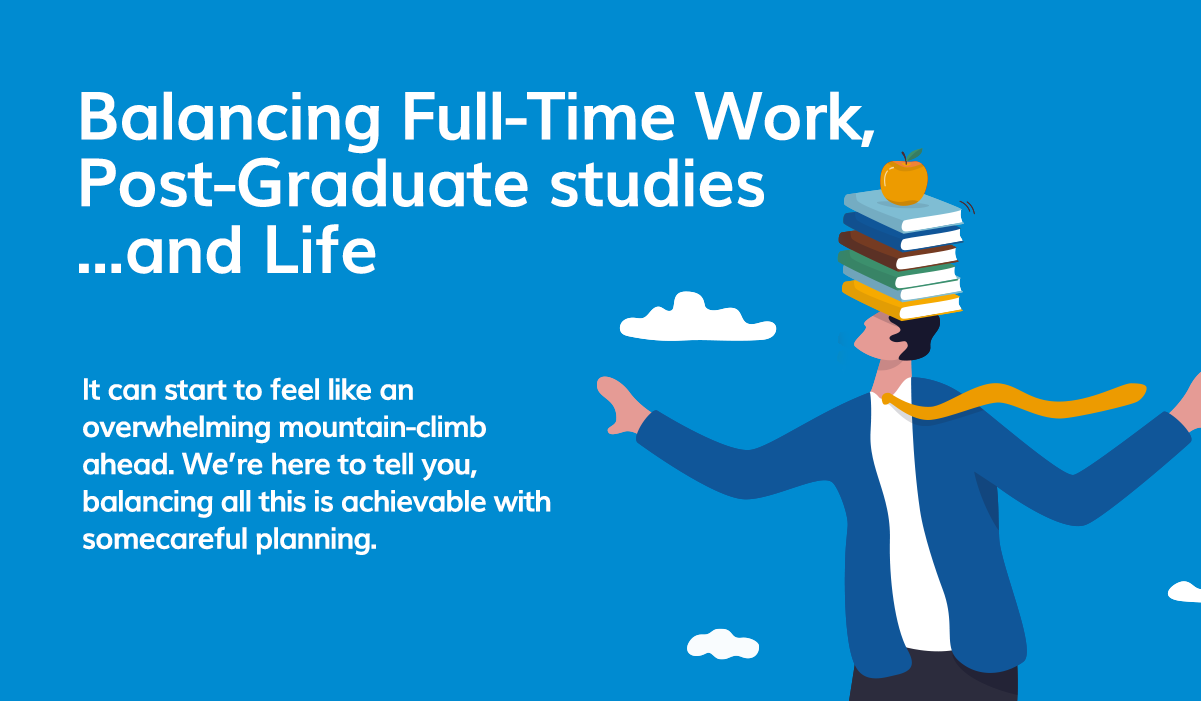It’s October and that means we’re in the start of the academic year, courses are starting to pick up and many may be trying to settle in – often juggling full-time work, studies, possibly a part-time job… and life! It can start to feel like an overwhelming mountain-climb ahead. We’re here to tell you, balancing all this is achievable with careful planning and strategic use of your time.
1. Let Your Loved Ones…and Employers Know.
If your loved ones can understand the workload and many things on your plate, they are in a better position to offer help and support. Keeping them out won’t help you, or them. Keep the communication lines open. If the course in question is related to your work, do not hesitate to inform your employer! They might assign special leave days for educational purposes, which will definitely lessen the workload. Good employers would recognise the importance of learning and development and will seek to help you out however possible. Moreover, don’t be afraid to delegate tasks or ask for help; it doesn’t make you weak, but rather, it shows your strength in acknowledging your limitations.
2. Plan, Plan and Plan some more.
This goes without saying, but the key to balancing these demanding aspects of life lies in effective planning. Make friends with your calendar and to-do lists. Allocate specific time slots for work, study, and personal activities. Identify priorities and set realistic goals. Remember, Rome wasn’t built in a day, and your tasks don’t have to be completed in one either. Even if it looks like a mountainous pile in front of you, climbing just a little every day will get you there eventually.
3. Self-Care is Non-Negotiable.
In the midst of balancing work and study, self-care often takes a back seat. Remember, taking care of your physical and mental health is crucial. Ensure you get enough sleep, eat well, and exercise regularly. Allocate time for activities that bring you joy and relaxation, whether it’s reading, going for a run, a swim or a good pamper. Find your jam and prioritise it!
4. Stay Organised.
Use planners, or even an online Calendar (like Google’s), to keep track of lectures, key course dates and upcoming deadlines. If you know you might have a heavier workload at the office in a particular period, include that in your calendar too. This helps with managing deadlines of upcoming projects and keeping a balance.
5. Consider Therapy.
Your mental health can take a backseat in periods of high-stress. That’s why it’s important to seek therapy and dedicate time for your mental well-being. Therapy will also bring perspective to your problems and provide you with the soft-skills to manage them in a healthy manner.
Well done on seeking to embark on furthering your education! It can seem like a tough balancing act, but you’ve got this.
Discover our Course listings here. Share this article with a friend or colleague.


